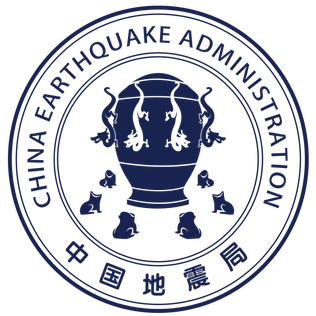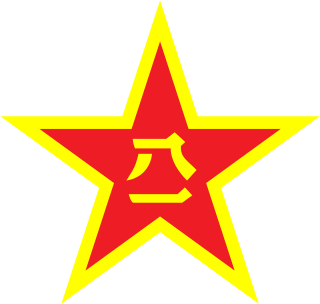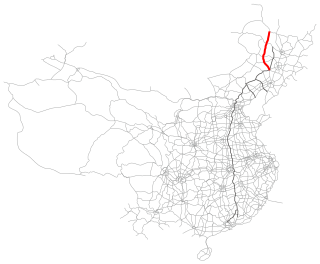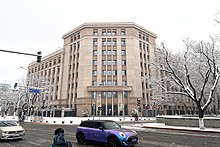
The Ministry of Commerce (MOFCOM) is a executive department of the State Council of the People's Republic of China that is responsible for formulating policy on foreign trade, export and import regulations, foreign direct investments, consumer protection, market competition and negotiating bilateral and multilateral trade agreements. it is the 20th-ranking department of the State Council. The current minister is Wang Wentao.

The University of International Relations is a public university in Haidian, Beijing, China.

The Ministry of Education of the People's Republic of China is a constituent department of the State Council, responsible for basic education, vocational education, higher education, and other educational affairs throughout the country. The Ministry of Education acts as the predominant funder of national universities and colleges in China. The ministry also accredits tertiary institutions, degree curriculum, and school teachers of the country.

The Maritime Safety Administration of the People's Republic of China is a government agency of departmental grade (正司局级) under the Ministry of Transportation. The MSA administers all matters related to maritime and shipping safety, including the supervision of maritime traffic safety and security, prevention of pollution from ships, inspection of ships and offshore facilities, navigational safety measures, administrative management of port operations, and law enforcement on matters of maritime safety law. It was also responsible for marine accident investigation. It is headquartered in Dongcheng District, Beijing.

The Ministry of Industry and Information Technology (MIIT) is the sixth-ranked executive department of the State Council of the People's Republic of China. It is responsible for regulation and development of the postal service, Internet, wireless, broadcasting, communications, production of electronic and information goods, software industry and the promotion of the national knowledge economy.

The Ministry of Human Resources and Social Security is a ministry under the State Council of China which is responsible for national labor policies, standards, regulations and managing the national social security. This includes labor force management, labor relationship readjustment, social insurance management and legal construction of labor. The State Bureau of Civil Servants reports to the new ministry.

National Administration of Traditional Chinese Medicine is a state administration of the People's Republic of China under the jurisdiction of the National Health Commission, responsible for the regulation of traditional Chinese medicine industry.

The China Earthquake Administration is a public institution managed by the State Council at the deputy ministerial level in charge of national earthquake disaster reduction work. It is currently managed by the Ministry of Emergency Management.
The constituent departments of the State Council are the principal units of State Council of the People's Republic of China. Types of departments include ministries, commissions, the People's Bank of China and the National Audit Office.
Chinese foreign aid may be considered as both governmental (official) and private development aid and humanitarian aid originating from the People's Republic of China.

The Li Keqiang Government was the Central People's Government of China from 15 March 2013, when Premier Li Keqiang took office, until March 2023. It succeeded the Wen Jiabao government. Premier Li was ranked only second to Party general secretary Xi Jinping among 7 members of the 18th and 19th Politburo Standing Committee, top decision-making body of the Chinese Communist Party (CCP).

The Office for International Military Cooperation of the Central Military Commission is the chief organ under the Central Military Commission of the People's Republic of China for coordinating the People's Liberation Army's relationships with foreign militaries. It grew out of the PLA's Foreign Affairs Office, founded in 1951. It was founded on January 11, 2016, under Xi Jinping's military reforms. Its first director was Rear Admiral Guan Youfei.

The World First-Class Universities and First-Class Academic Disciplines Construction (世界一流大学和一流学科建设), together known as Double First-Class Construction (双一流建设), is a higher education development and sponsorship scheme of the Chinese central government, initiated in 2015. There are 147 universities and colleges selected to be part of the program.

The Ministry of Culture and Tourism of the People's Republic of China (中华人民共和国文化和旅游部) is a constitute department of the State Council of the People's Republic of China in charge of culture and tourism.

The Chinese Academy of Agricultural Sciences is the Chinese national, agricultural scientific research organization.

The Shuangliao–Nenjiang Expressway, designated as G4512 and commonly referred to as the Shuangnen Expressway, is a partially completed expressway in China. It is a major north–south expressway that when complete, will connect the cities of Nenjiang City, in Heilongjiang, with Shuangliao, in Jilin, near the border with Inner Mongolia.

"One institution with two names" is a bureaucratic arrangement in the Chinese government wherein a government agency exists in name only, and its functions are in practice performed by another agency or a Chinese Communist Party (CCP) organization, so that in effect one institution has two or more governmental brands or trade names to use selectively for political, historical, or bureaucratic reasons. This type of arrangement was historically common until the mid-1980s, but has been extensively revived by reforms which began in 2017.

Qin Yaqing is a Chinese political scientist and a constructivist international relations theorist. Since May 2021, he has been a Chair Professor at Shandong University. Prior to that, Qin was the President and a Professor of China Foreign Affairs University (2014-2019).
China uses various methods to carry out nationwide anti-drug publicity and education and popularize drug prevention knowledge. The main purpose is to strengthen citizens' anti-drug awareness and improve citizens' awareness of the harm of drugs. A major task of comprehensive anti-drug publicity and education is to popularize drug prevention knowledge, reveal the serious harm of drug abuse to individuals, families, and society, strengthen the anti-drug awareness of the entire population, especially young people, educate the public security bureau to combat drug-related crimes, and build an effective mechanism for the whole society to prevent drug abuse. Minimize the proportion of new drug addicts. It can be said that the anti-drug publicity and education work with preventive education as the main task is the fundamental solution to the anti-drug work, and its effect kills two birds with one stone.



















